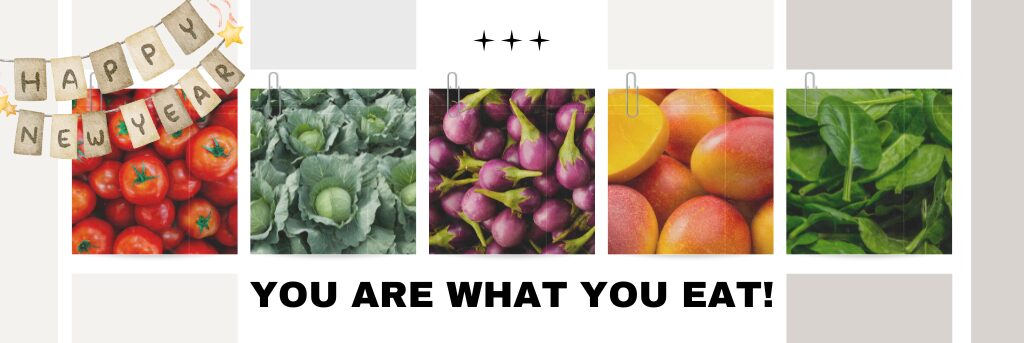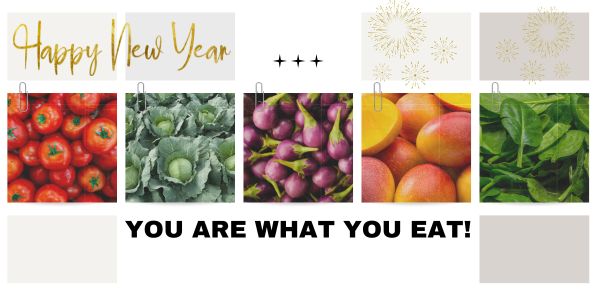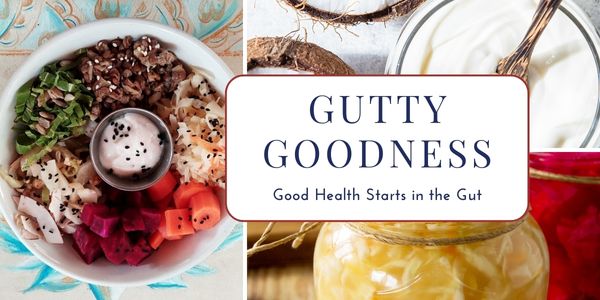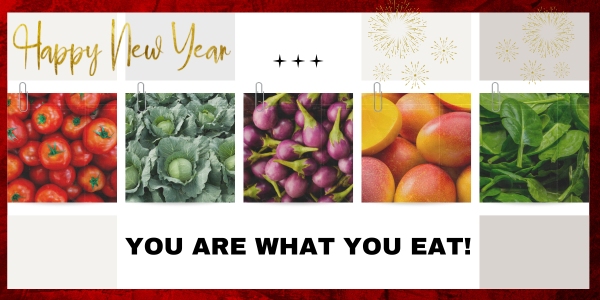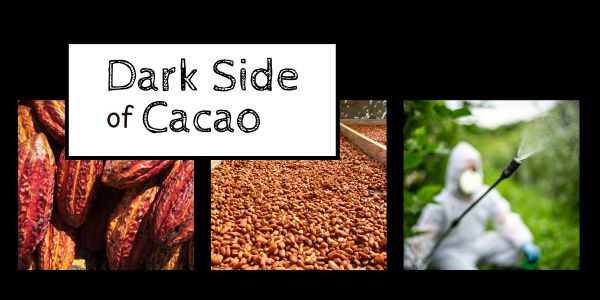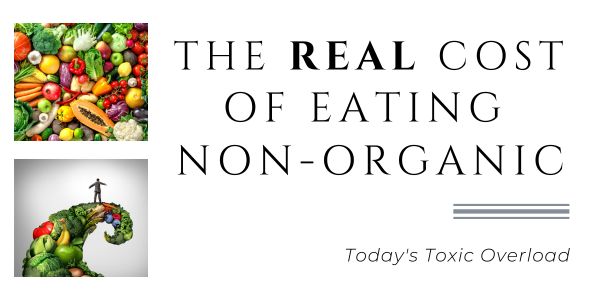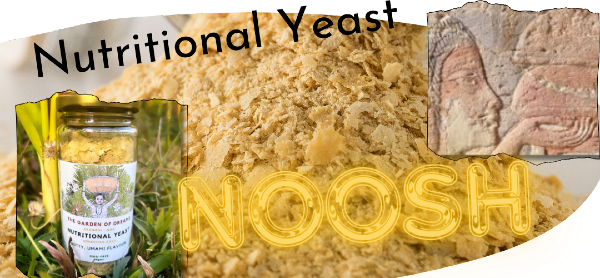“If you don’t change any habits you won’t have a new year, just another year.”
Happy ‘New’ Year? You Are What You Eat!
Kaizen is the Japanese art of constantly making small changes that ultimately lead you to a better place. Eating healthy is one of these changes because you are what you eat.
We can’t all instantly switch to a fully 100% organic healthy diet, but we can make some small changes.
We’re the same here at the Garden of Dreams… and for that last two years we’ve constantly been making positive changes behind the scenes…
Many of the things you’re eating in the Garden are fully certified organic. Some we tell you about on the menu, others (and there are many) are undercover.
Our Raw Vegan Cakes are all 100% organic, as is our gut health superfood bowl (the Gutty Goodness Bowl), the Mediterranean Nut-Loaf… And many of the other ingredients used are organic too.
Our coconut milk, peanuts, chickpeas, flax seeds, watermelon seeds, pumpkin seeds, sunflower seeds… are all certified organic. Check out our list of fully certified products which is updated regularly.
We don’t use cheap refined salt. Or oils. We use organic, cold pressed coconut oil, extra virgin olive oil and even for deep frying we use a good quality sunflower oil without chemicals like TBHQ (Tert-butylhydroquinone) used in so many cheap oils. TBHQ is used for extending the shelf-life of the oil, it also increases: asthma, allergic reactions, reduces immunity levels and has carcinogenic effects. There is NONE in our kitchen!
The Dirty Dozen:
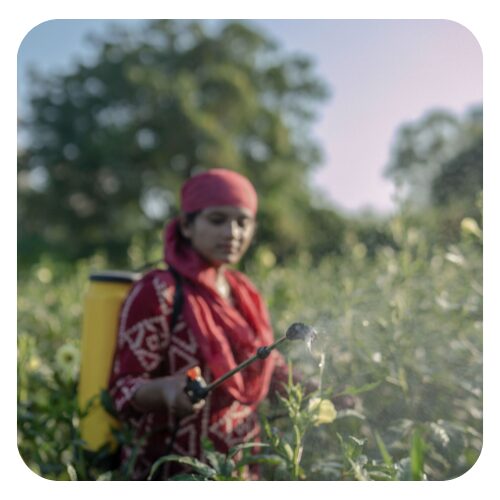
The Dirty Dozen are a list of the top most pesticide, herbicide, and fungicide chemically laced fruits and vegetables… this is from the EWG (Environmental Working Group) but this, often quoted list, is from the USA. So what about here in India…?
We’ve done the research for you and compiled this list of top Indian fruits and vegetables that are best avoided unless they are certified organic… These are the ones to start buying organic.
Top DIRTY Fruits & Veg to Avoid in India:
DDT is probably the most controversial chemical insecticide in the world… and officially banded in India in 1972.
However, a study by the Indian Council of Medical Research found that DDT residues were detected in about 58% of 2,000 rice samples and 78.2% of 632 samples of wheat flour… DDT is also found in Milk.
Time to Go Organic?
What price do you put on your health?
The saying “you are what you eat” highlights the direct link between diet and health. Choosing organic foods amplifies this, as organic farming avoids synthetic chemicals.
This choice benefits both your personal well-being and the environment by supporting sustainable agriculture.
Now, the often quoted Clean 15 are the fruits and veggie that use the least amount of chemicals… but again this relates to produce from the USA… so what about here in India?
Again, we’ve done the research for you… These ones are typically safe to eat non-organic when locally grown. Although there are still many of them that we still source as certified organic because, unless it’s certified, there’s no guarantee they are safe from chemicals.
Top CLEAN Fruits & Veg in India:
Locally Grown Doesn’t Mean Safe!
Even the mango tree next to our house (it doesn’t get any more local that that) is sprayed with “medicine” 4 or 5 times a year.
This medicine is Folicure. I call it poison, after all it’s designed to kill ‘pests’.
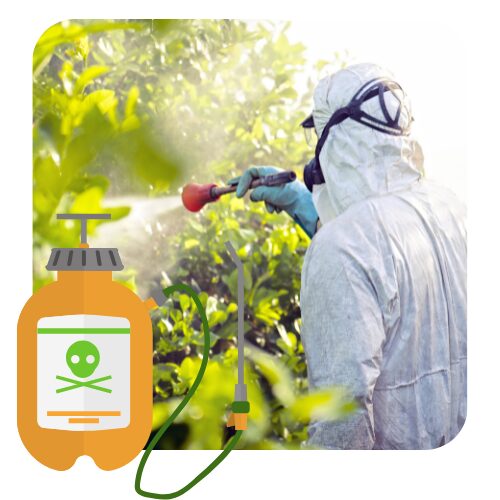
The product spec sheet from Bayer advises farmers to use goggles, gloves, masks and overalls. Of course, the people spraying the Mango Tree next to our house weren’t using any of this protective equipment… and so endangering their own health.
The list of neuro toxicity, damage to liver, lungs, and reproductive issues associated with this ‘medicine’ make the marketing phrase ‘locally grown’ meaningless.
As is the phrase ‘Natural’. It has no defined meaning. It’s just marketing speech to make it more appealing to you, and it means nothing, anything can be called natural. Natural products can be covered in chemicals.
Another, slippery marketing term is the term ‘Conventional Farming’.
Conventional Farming is chemical farming… and in Conventional Farming they use synthetic fertilizer, fungicides, pesticides, herbicides, they are sprayed with preservatives, artificially ripened… the list of ‘conventional’ farming practices is far from natural.
You Are What You Eat – Time to Eat Organic
Because you’re worth it. Where better to spend your money than on you and your health.
It’s not a buzz word we’re using here… and it’s certainly not because it’s cheaper (on average organic ingredients are 50% more), the reason we’re using more and more Certified Organic is because it’s the right thing to do.
Happy New Year – wishing you and your loved ones a very Happy New and More Organic 2025 from all of us at the Garden of Dreams Vegetarian Restaurant in Arambol, North Goa.
Read More Garden of Dreams Blog Posts
Good health starts in the gut… You need some Gutty Goodness.
Good Health Starts in the Gut. You Need Gutty Goodness. Gut Health. Your gut is…
Happy ‘New’ Year? – You are what you eat!
“If you don’t change any habits you won’t have a new year, just another year.”…

